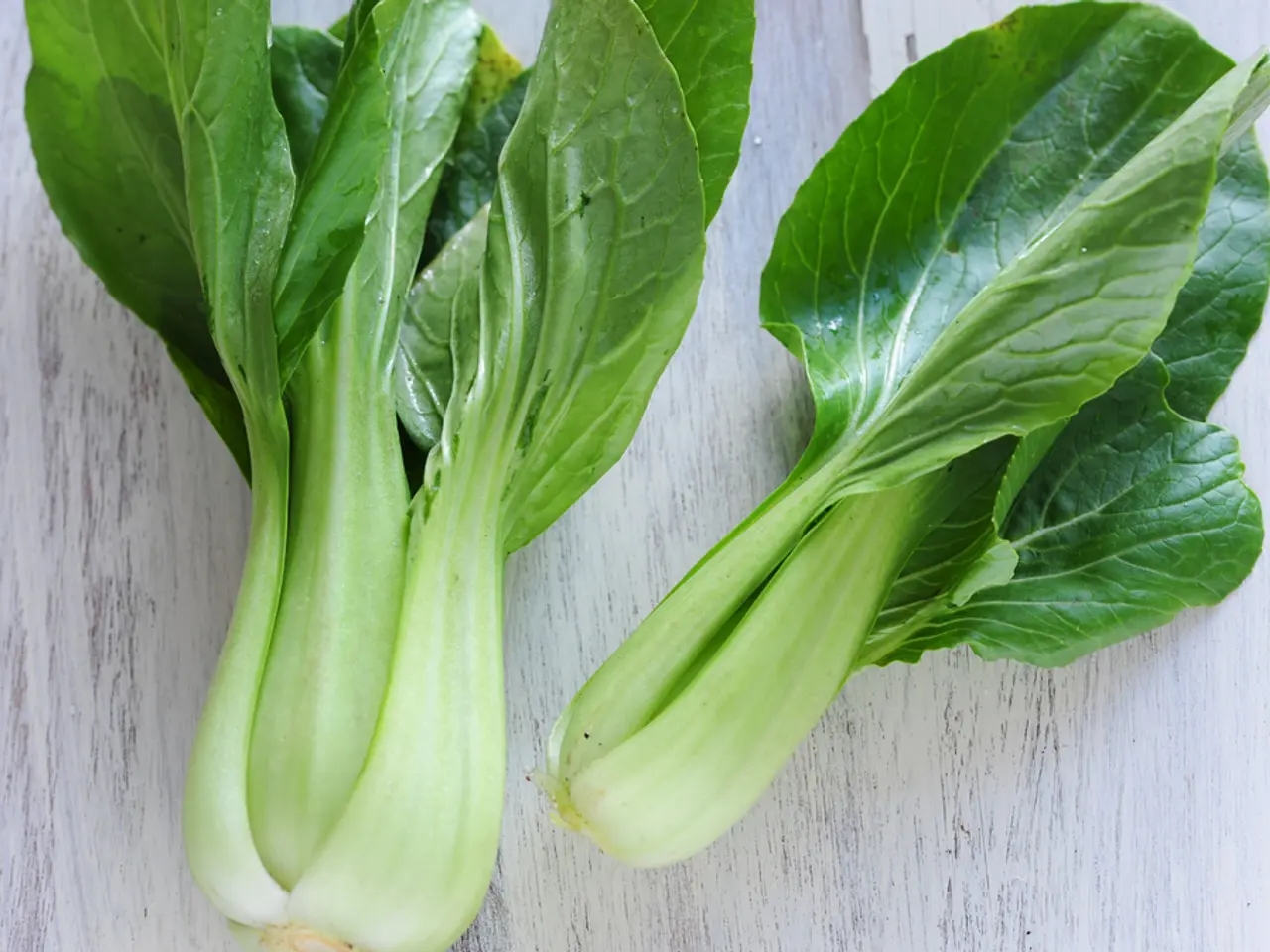Keto Diet and Vegetables: Understanding What to Incorporate, What to Steer Clear of, and Additional Insights
=====================================================================
In the world of dieting, the keto diet has gained significant popularity for its ability to promote weight loss and improve overall health. This low-carb, high-fat diet requires individuals to limit their daily carbohydrate intake and instead rely on fat for energy. Here's a breakdown of the vegetables you should include and avoid to maintain ketosis effectively.
For a well-rounded keto diet, focus on incorporating low-carb vegetables such as:
- Spinach: Both mature and baby spinach are suitable choices, with mature spinach containing 2.1 grams of carbs per 100 grams and baby spinach containing 1.4 grams. Both varieties also provide 1.6 grams of dietary fiber.
- Broccoli, cauliflower, cabbage: These cruciferous vegetables are rich in nutrients and fibre, making them excellent options for maintaining ketosis.
- Zucchini: With 3.3 grams of carbs and 1 gram of dietary fiber per 100 grams, zucchini is versatile and can be used in various dishes, from salads to low-carb pasta alternatives.
- Mushrooms: Varieties like white button, lion's mane, king oyster, shiitake, portabella, pioppini, oyster, maitake, enoki, and crimini all have varying amounts of carbs and dietary fiber, making them suitable additions to your keto diet.
- Bell peppers, asparagus, cucumbers, radishes, eggplant, and green beans: These vegetables have very few net carbs and are rich in fibre, making them excellent choices for maintaining ketosis.
- Celeriac (celery root): Despite being a root vegetable, celeriac provides low net carbs and extra nutrients such as vitamin C and vitamin K, making it a keto-friendly option.
It's important to note that portion control is crucial when following a keto diet. Even low-carb vegetables can add up, so consider both net carbs (total carbs minus fiber) and glycemic index to help keep blood sugar stable.
On the other hand, it's best to avoid starchy vegetables like potatoes, corn, carrots, and winter squash, as they contain too many carbs which can disrupt ketosis. Some seemingly healthy options, such as corn, often have a higher glycemic index and carbohydrate content, making them unsuitable for a keto diet.
Celery, when consumed raw, is a low-carb and low-calorie option for a keto diet, containing only 1.6 grams of carbs per 100 grams. It also provides essential nutrients like calcium and potassium. Cucumber, when consumed, contains 3.6 grams of carbs per 100 grams, but peeling cucumber reduces the carb content to 2.1 g and 0.7 g of dietary fiber.
Tomatoes, depending on the type, can provide essential nutrients like potassium, vitamin A, and vitamin C. However, they do contain varying amounts of carbs, so it's essential to monitor portion sizes.
When following a keto diet, it's important to remember that vegetables are not the only source of nutrition. A person generally does not need to limit the amount of fat they consume while following a keto diet.
In summary, focus on including spinach, kale, arugula, broccoli, cauliflower, cabbage, zucchini, mushrooms, bell peppers, asparagus, cucumbers, radishes, eggplant, green beans, celeriac, and tomatoes (in moderation) in your keto diet. Avoid potatoes, corn, carrots, winter squash, and other starchy or sugary vegetables. Monitor portion sizes and net carbs to maintain ketosis, and remember that a balanced selection helps sustain a keto diet effectively while providing necessary vitamins and fiber.
- Remaining in a state of ketosis can be challenging, as depression often leads to poor diet choices and increased carbohydrate intake.
- Psoriasis, an inflammatory skin condition, may benefit from a healthy diet, such as those rich in foods like spinach, broccoli, and cauliflower.
- COPD, or chronic obstructive pulmonary disease, is often exacerbated by obesity, making a low-carb, high-fiber diet like the keto diet potentially beneficial.
- Bipolar disorder, a mental health condition, is often managed with a combination of medication and lifestyle changes, such as adhering to a keto or other nutritious diet.
- The predictive role of nutrition in cancer prevention is well established, with diets rich in vegetables, like keto-friendly ones, being protective against NSCLC, or non-small cell lung cancer.
- Maintaining a healthy diet and lifestyle, including following a keto diet, can lower risks for other nutrition-related conditions like heart disease and diabetes.
- The science of nutrition provides evidence that a well-rounded keto diet includes not only low-carb vegetables but also adequate protein and healthy fats, such as those found in food-and-drink products like avocado oil, nuts, and seeds.
- In health-and-wellness circles, the keto diet has gained popularity as a tool for weight loss and improved health, with many advocating for it as part of a holistic approach to lifestyle management.
- A person following a keto diet must be mindful of their entire diet, ensuring adequate fiber intake, and may need to include sources of fiber such as chia seeds, flax seeds, and dark leafy greens in their meals.
- In some cases, people with specific health conditions, such as liver or kidney disease, may need to consult a healthcare professional before starting a keto or any other diet to ensure that their individual nutritional needs are being met.




